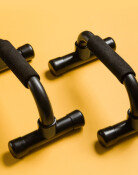[Opinion] Reclaiming Lake Sihwa
[Opinion] Reclaiming Lake Sihwa
Posted September. 08, 2006 07:00,
Lake Sihwa, which spans three cities in Gyeonggi Province, namely Ansan, Siheung, and Hwaseong, is regarded as one of the worst development failures caused by ignorance of environmental factors. As part of the Large-scale Comprehensive Development Project in the Sihwa District, the Korea Rural Community and Agriculture Corporation (formerly, the Rural Development Corporation) had initially planned to construct an embankment on the mudflat and drain the seawater so that they can fill the lake with freshwater and provide it for agricultural uses. However, when the embankment was completed in 1994, it turned into a lake of death as the wastewater from the nearby factories and residential areas flowed in.
In a state of emergency, the Korea Rural Community and Agriculture Corporation (KRC) opened the floodgates since March 1997 in attempt to improve the quality of the water by taking some seawater into the lake, but in vain, as the toxic water from the lake only massacred the marine life. Eventually, in November 1998, the Kim Dae-jung Administration gave up freshening the lake and completely opened the sluice gates. 620 billion won of the national budget spent in the construction of the embankment vanished in a moment.
With less human interference, and left to the ebb and flow of the seawater, Lake Sihwa finally began to cure itself. The level of chemical oxygen demand, which was 20.8ppm in 1997, considerably decreased to 3.9ppm by 2000. Lugworms and shellfish appeared again on the mudflats and a massive number of migratory birds now flock to prey on them. The lake has been transformed into a famous habitat for bird colonies, and fish have gathered in the lake, which is now surrounded by reeds. As fossils of dinosaur eggs have been discovered recently, the lakes value in terms of natural history has also been elevated.
It is reported that a shift worker from the KRC Ansan Center who manage the floodgates of the lake and officials from the Ministry of Construction and Transportation enjoyed fishing together on the lake with their families and brought home a shoal in an icebox. Since fisheries in the zone are restricted and the floodgates were arbitrarily controlled, it must have been indeed a wonderful fishing experience for them. There can hardly be a better example for the Korean idiom, Setting a cat to guard a fish shop. It makes us more resentful as they might be the people who were more aware than anyone else of the tragic history of the lake. Well, I cant help admitting its indeed not only the cats that mess up with fish stores.
Chung Seong-hee, Editorial Writer, shchung@donga.com




![“설거지해도 그대로”…냄비 ‘무지개 얼룩’ 5분 해결법 [알쓸톡]](https://dimg.donga.com/c/138/175/90/1/wps/NEWS/IMAGE/2026/01/15/133164664.3.png)


